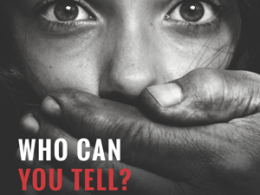Modern Slavery could be all around us, in streets, houses, construction sites, shops and many other places. The good news is anyone can play a part in stamping out exploitation.
This week, we’re encouraging you to spot the signs in Suffolk.
- Physical appearance
- Signs of physical or psychological abuse, looking malnourished or unkempt, or appearing withdrawn and neglected. They may have untreated injuries.
- Isolation
- Rarely allowed to travel on their own, seem under the control, influence of others, rarely interact or appear unfamiliar with their neighbourhood or where they work.
- Poor living conditions
- Living in dirty, cramped or overcrowded accommodation and / or living and working at the same address.
- Restricted freedom of movement
- Have no identification documents, have few personal possessions and always wear the same clothes day in day out. What clothes they do wear may not be suitable for their work.
- Have little opportunity to move freely and may have had their travel documents retained, e.g. passports.
- Unusual travel times
- Be dropped off / collected for work on a regular basis either very early or late at night.
- Reluctant to seek help
- Avoiding eye contact, appearing frightened or hesitant to talk to strangers and fear law enforcers for many reasons, such as not knowing who to trust or where to get help, fear of deportation, fear of violence to them or their family.
For more information visit the Suffolk Safeguarding Partnership website.
If you have suspicions that someone is being trafficked – or to get help and seek advice - you can contact the Modern Slavery Helpline on 08000 121700.
If you believe a person is being trafficked and is in immediate danger, you should call 999 straight away.
You can also report suspicions of trafficking by calling Suffolk Police on 101 or via Crimestoppers anonymously on 0800 555111.
